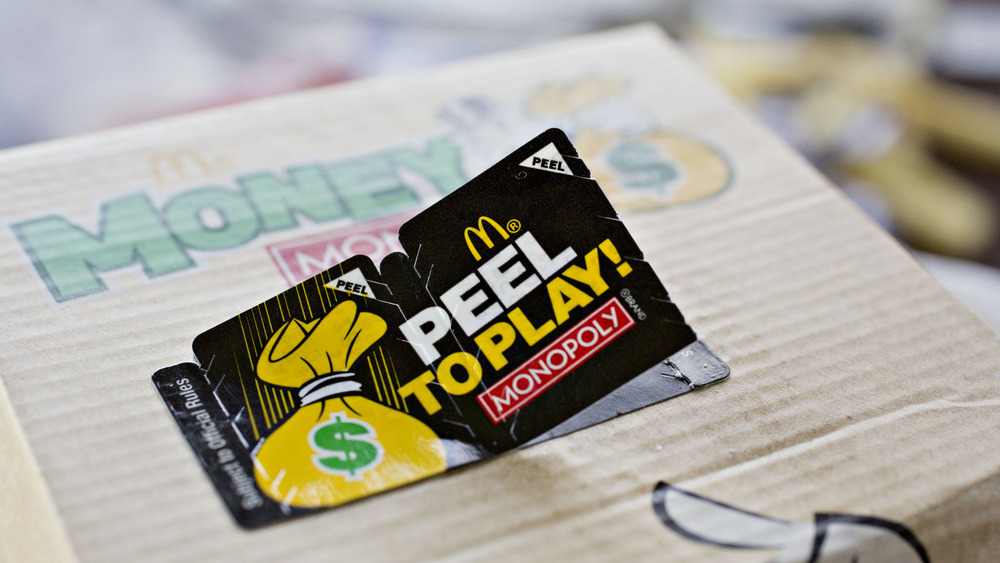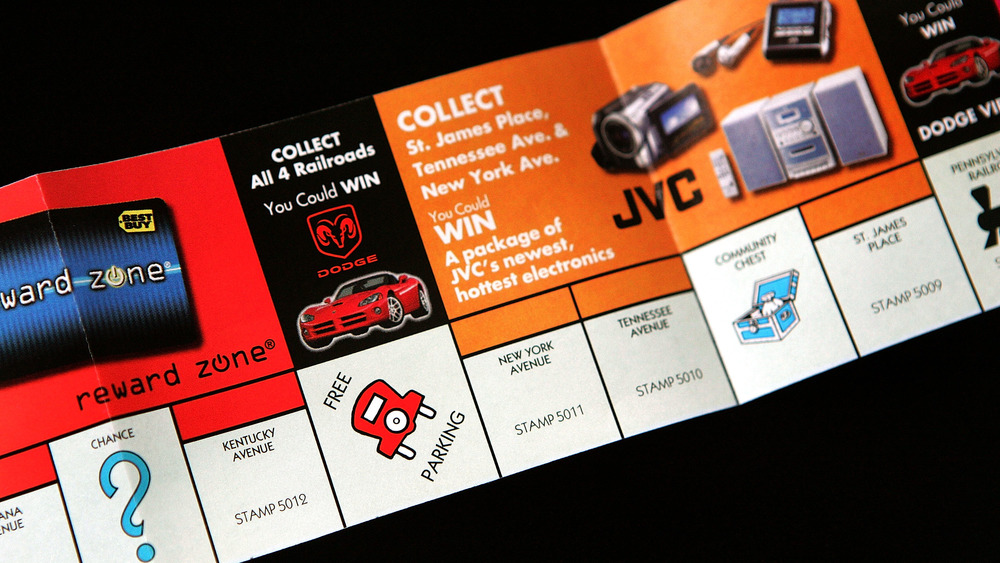The Weird History Of McDonald's Monopoly
For as long as anyone can remember, McDonald's has always been a fan favorite and, according to Eat This, Not That!, has been marked as one of the United States' most popular fast food restaurants. There is something about the golden arches that brings on a sense of nostalgia that many places don't possess. From its crispy chicken nuggets to its loaded and stacked up burgers, McDonald's never disappoints.
Throughout its lengthy history within the mainstream food culture, the fast service restaurant has released some equally iconic things like the Happy Meal, Ronald McDonald, and the infamous peel-off Monopoly game that allowed customers to win big prizes over the years. What many don't know is that the Monopoly game has a super-sized and somewhat wild history that it will forever be linked to thanks to a man nicknamed "Uncle Jerry," per Mental Floss, as he began to steal pieces from the company who printed out the winning peel-offs.
The McDonald's Monopoly game was investigated by the FBI
According to a Business Insider report, the McDonald's game (which was launched in 1987) was investigated for embezzlement thanks to a group of people who were running a ring and stealing the winning pieces. Mental Floss reports that the mastermind at the helm of this ambitious group of folks was Jerome Jacobson (nicknamed "Uncle Jerry"). So, how exactly did he grab a hold of the winning pieces?
Per Mental Floss, he was on the VIP escort for the pieces as they were taken to the production plant to be placed on the food containers. Jacobson and his group of friends all went on to net over $24 million before the FBI were able to bring them to justice, reports CNBC. How exactly did the FBI catch wind that all of this was going on?
Mental Floss explains that Uncle Jerry was done over by one of his own when they decided to clue in the FBI. The Feds then went on to investigate all the suspicious behavior and devised a plan to nab the ring leader and his associates. The plan in question? The FBI set up wiretaps, checked phone records, tailed suspects that were connected to the ring, and even created a fake TV commercial crew (via Mental Floss and CNBC).

